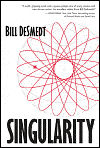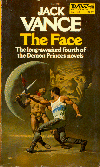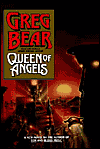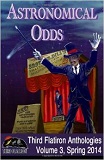
Singularity, by Bill DeSmedt
Book Review by Jack Mangan
Have you read this book?
What you need to know about Bill DeSmedt's Singularity.
Unless you've sworn exclusive allegiance to some particular sub-genre or author; unless you're utterly averse to stories with real-world settings; I can damn-near guarantee that you won't dislike Bill DeSmedt's *Singularity*. Fans of Michael Crichton, Tom Clancy, Greg Bear, and/or Clive Cussler should especially enjoy this one. It will make you think, and inspire you to look further into the real-world science and historical events at the heart of the story. There are promises of a sequel; while I won't camp out at Barnes & Noble the night before the release date, I expect I'll eventually read that book too.
"Singularity" is *not* George Lucas or Gene Roddenberry Sci-Fi. This is a techno-thriller with some heavy-duty science at its core; a brilliant premise steeped heavily in quantum physics, astrophysics, and even with a pinch of string theory. The term "Singularity" in this case does not refer to the Vernor Vinge technological singularity concept, (http://www.ugcs.caltech.edu/~phoenix/vinge/vinge-sing.html), but rather to the classic elemental definition: a black hole.
The famous meteor impact of 1908 in the Russian Tunguska region is redefined as the collision of a microscopic black hole, which never passed out the other side of the planet, but since 1908 has burrowed in a circular, subsurface orbit inside of the Earth. A wealthy, post-Soviet, James-Bond-worthy villain named Arkady Grishin, replete with ice-cold, highly-efficient, homicidal henchman, has set his sights on this mysterious object, though his ultimate designs remain shrouded in mystery. Analyst Jonathan Knox was once close friends with Grishin's semi-naive hired research scientists, and therefore finds himself strong-armed into helping beautiful US intelligence agent Marianna Bonaventure to get onboard and investigate the activities and studies being conducted on Grishin's uber-yacht, Rusalka.
Bill DeSmedt is obviously an educated, seasoned, intelligent, "been-there" guy. This book is littered with innovative and intriguing images of post-Cold War political mechanisms at work, convincing, believable depictions of scientific anomalies in action, along with some crash-bang, tense action sequences. Sounds like he's created a winner, right? Well yes. Pretty much.
There are a few extremely frustrating elements, which trip this up from being a great book, and reduce it to merely a very good read. I'll list them here, more to vent my frustration than to beat up on the book. I highly recommend it as a read, but I'm disappointed that the final result wasn't as fantastic as it could have been.
His overusage of the exclamation point is almost criminal! It's very distracting and unnecessary! Bill DeSmedt's writing style is literary and smart, energetic almost to the point of giddiness, but about as edgy as a butter knife. I understand that he wasn't necessarily going there - and that's fine - but I'd have liked a little more grit to make the villains scarier, and the heroes a little bit more real. The characters seem to have been taken from the Stock Character shelf, and though they are imbued with touches of personal history, are just not as interesting as they could have been. Actually, Knox becomes more interesting as the book progresses, but it takes quite awhile. My final complaint: amidst all of the wild scientific theories and temporal-physics screwing around, the only thing that felt implausible was the developing romantic relationship between Knox and Marianna. Their sexual tension felt extrememly fabricated, like the author's fantasy transfered to page. It didn't really work, didn't come across as sexy or touching, and only served to distract and detract. The innuendo in their thoughts and flirtation was often groan-inducing. If Bill DeSmedt were ever to write a straight-up character study, or even worse, a romance novel, I'd run screaming in the opposite direction. His strengths are in his scientific aptitude, his knowledge of Cold War history, and his sense for action scenes. He employs these three elements with masterful skill, and therefore the weak jokes and occasional rashes of subpar dialogue are easily forgiven.
"Singularity" is smart, fast-paced, thought-provoking, tense, fascinating at times, and (standard book review term ahead) unputdownable. This book's climax alone is exciting enough to warrant a 4-star rating.
http://jackmangan.blogspot.com
Unless you've sworn exclusive allegiance to some particular sub-genre or author; unless you're utterly averse to stories with real-world settings; I can damn-near guarantee that you won't dislike Bill DeSmedt's *Singularity*. Fans of Michael Crichton, Tom Clancy, Greg Bear, and/or Clive Cussler should especially enjoy this one. It will make you think, and inspire you to look further into the real-world science and historical events at the heart of the story. There are promises of a sequel; while I won't camp out at Barnes & Noble the night before the release date, I expect I'll eventually read that book too.
"Singularity" is *not* George Lucas or Gene Roddenberry Sci-Fi. This is a techno-thriller with some heavy-duty science at its core; a brilliant premise steeped heavily in quantum physics, astrophysics, and even with a pinch of string theory. The term "Singularity" in this case does not refer to the Vernor Vinge technological singularity concept, (http://www.ugcs.caltech.edu/~phoenix/vinge/vinge-sing.html), but rather to the classic elemental definition: a black hole.
The famous meteor impact of 1908 in the Russian Tunguska region is redefined as the collision of a microscopic black hole, which never passed out the other side of the planet, but since 1908 has burrowed in a circular, subsurface orbit inside of the Earth. A wealthy, post-Soviet, James-Bond-worthy villain named Arkady Grishin, replete with ice-cold, highly-efficient, homicidal henchman, has set his sights on this mysterious object, though his ultimate designs remain shrouded in mystery. Analyst Jonathan Knox was once close friends with Grishin's semi-naive hired research scientists, and therefore finds himself strong-armed into helping beautiful US intelligence agent Marianna Bonaventure to get onboard and investigate the activities and studies being conducted on Grishin's uber-yacht, Rusalka.
Bill DeSmedt is obviously an educated, seasoned, intelligent, "been-there" guy. This book is littered with innovative and intriguing images of post-Cold War political mechanisms at work, convincing, believable depictions of scientific anomalies in action, along with some crash-bang, tense action sequences. Sounds like he's created a winner, right? Well yes. Pretty much.
There are a few extremely frustrating elements, which trip this up from being a great book, and reduce it to merely a very good read. I'll list them here, more to vent my frustration than to beat up on the book. I highly recommend it as a read, but I'm disappointed that the final result wasn't as fantastic as it could have been.
His overusage of the exclamation point is almost criminal! It's very distracting and unnecessary! Bill DeSmedt's writing style is literary and smart, energetic almost to the point of giddiness, but about as edgy as a butter knife. I understand that he wasn't necessarily going there - and that's fine - but I'd have liked a little more grit to make the villains scarier, and the heroes a little bit more real. The characters seem to have been taken from the Stock Character shelf, and though they are imbued with touches of personal history, are just not as interesting as they could have been. Actually, Knox becomes more interesting as the book progresses, but it takes quite awhile. My final complaint: amidst all of the wild scientific theories and temporal-physics screwing around, the only thing that felt implausible was the developing romantic relationship between Knox and Marianna. Their sexual tension felt extrememly fabricated, like the author's fantasy transfered to page. It didn't really work, didn't come across as sexy or touching, and only served to distract and detract. The innuendo in their thoughts and flirtation was often groan-inducing. If Bill DeSmedt were ever to write a straight-up character study, or even worse, a romance novel, I'd run screaming in the opposite direction. His strengths are in his scientific aptitude, his knowledge of Cold War history, and his sense for action scenes. He employs these three elements with masterful skill, and therefore the weak jokes and occasional rashes of subpar dialogue are easily forgiven.
"Singularity" is smart, fast-paced, thought-provoking, tense, fascinating at times, and (standard book review term ahead) unputdownable. This book's climax alone is exciting enough to warrant a 4-star rating.
http://jackmangan.blogspot.com
|
Click here to buy Singularity, by Bill DeSmedt on Amazon
|
Singularity, by Bill DeSmedt on Amazon

| More Books You Might Like |
Comment on Singularity, by Bill DeSmedt
| Comments on Singularity, by Bill DeSmedt |
| There are no comments on this book. |




